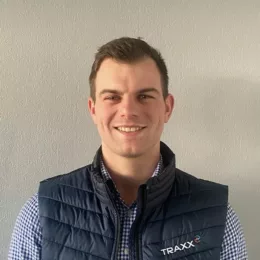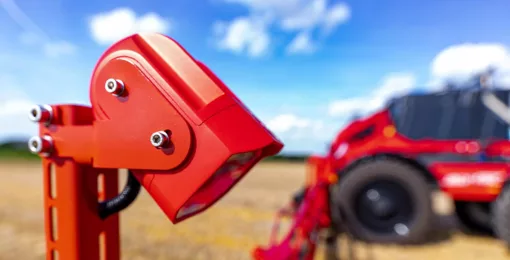A Family business
Vincent Ballu founded the Tecnoma company in 1952 selling agricultural sprayers and elevated tractors which revolutionized winegrowing machinery.
In 1987, Exel was born following the acquisition of Berthoud, the French market leader for agricultural sprayers and garden sprinklers, thereby creating a multi-brand group for agricultural sprayers. Later, the group expanded to include gardening activities, beet harvesting and the industrial spray market.
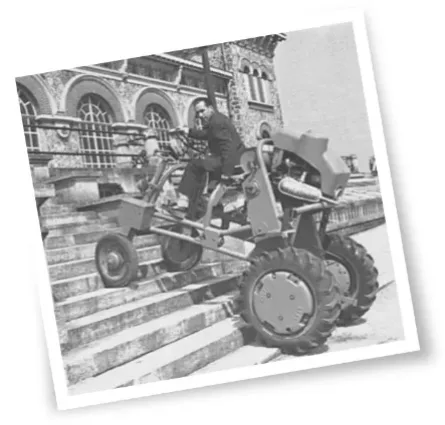
Exxact Robotics, subsidiary of Exel Industries
The group was created in 2019 and the Exxact Robotics subsidiary specializes in precision agricultural solutions.
The structure is dedicated to developing autonomous agricultural vehicles and systems to enhance their perception of the specific environment involved in vineyards and also that of extensive cultures. The aim is to offer sustainable solutions to accompany the major ongoing transitions in farming by limiting the use of crop protection products, developing new methods (biocontrol, agricultural ecology, simplified growth techniques), all of which require high-precision pulverisation.
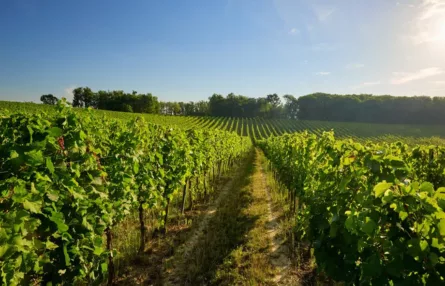
Team
Working with Exxact Robotics means fostering a team spirit where responsibilities and autonomy are of the essence.
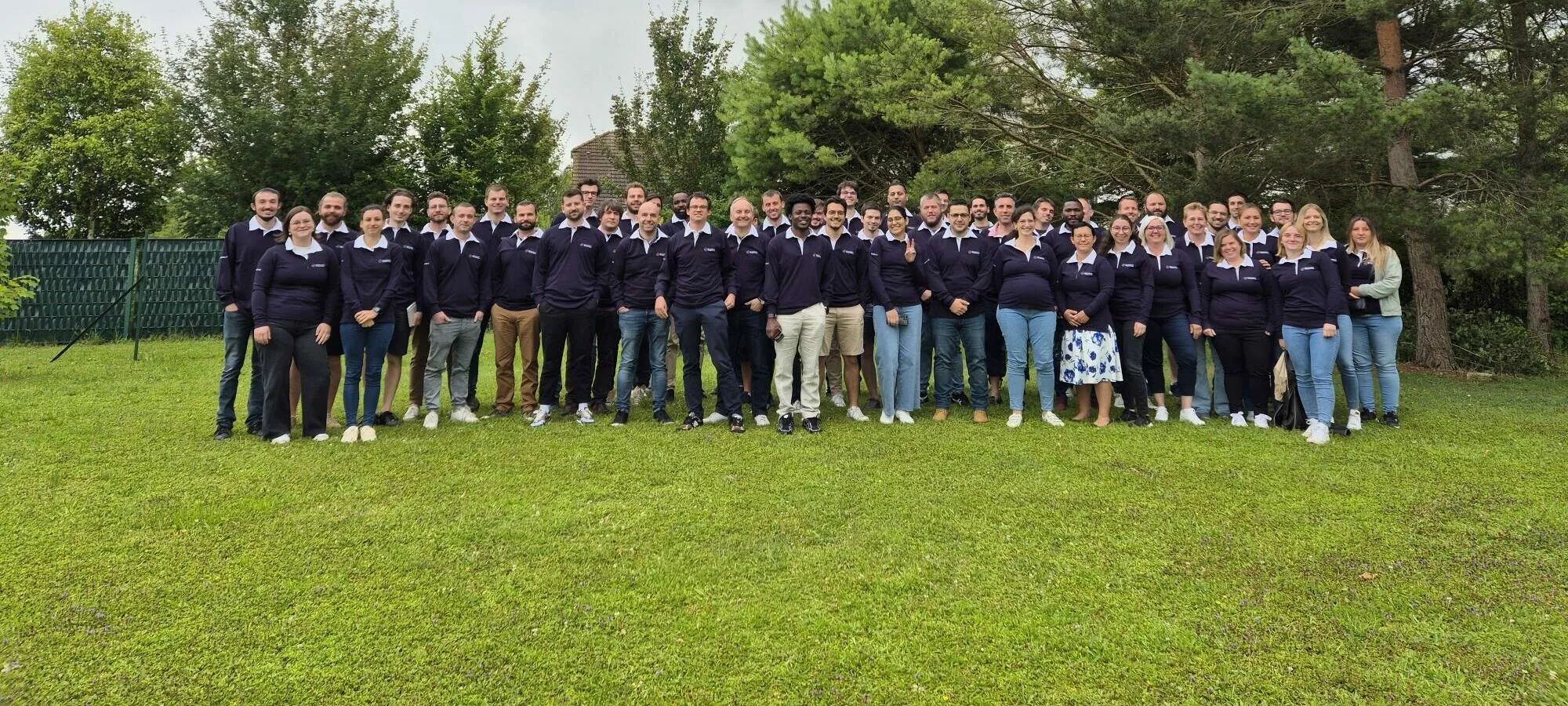
Philosophy
Agricultural ecology and artificial intelligence
We strive towards increased efficiency in the application of sprayed products with the help of AI and vision sensors. The aim is to reduce the quantity of fungicides, herbicides and insecticides used and to activate agronomic levers to fight against biological plagues. This technology has the advantage of providing indispensable track and trace information for farmers and agricultural businesses.
Robotics and sustainable solutions
We are committed to developing autonomous agricultural vehicles which meet the requirements for organising farmsteads and ensuring the security of the users. We are particularly attentive when it comes to finding sustainable solutions to address the problems winegrowers are currently confronted with in terms of best practices and the development of biological control requiring high-precision spraying.
Expertise
For sustainable solutions
“The technical itineraries for vineyards or farms characterize the different crop options that are available depending on the objectives which have been set. Being able to analyse these itineraries is particularly interesting when it comes to adapting to different crops. The analyses take into account numerous factors such as pedoclimatic and technical conditions, available machinery, the environment and the economic impact of the itinerary.”
Environmental analysis is an in-depth study of the direct and indirect effects an organisation or product can have on the environment. The objective of this type of analysis is to anchor practices in the protection of the environment, a stake which is on the rise for both farms and vineyards. Life-cycle analysis is an example of an environmental analysis.”
“Digital agriculture can be defined as the combination of two rapidly changing disciples: farming practice and new computerised technology.
The use of perception sensors allows the farmer to collect, analyse and valorise environmental data on varying levels of space and time, the objective being to guide farming practices towards more efficient and sustainable methods.
These applications, known as Precision Agriculture, can be used both to agronomically monitor crops thanks to the development of decision-enabling tools, but also to improve farm machinery which can be automatically piloted with increasing precision leading to semi- or even totally-autonomous guidance.
Recent technological advances in precision electronics and their innovative applications, such as autonomous robotics, are surging forward. High capacity embedded software oversees the setting up and use of these systems allowing complex tasks to be carried out in real time and with optimum precision which, up until now, had been considered impossible by the high-tech industry.”
“In order to feed the increasing world population today and in the future, farmers must help plants by supplying them with essential elements to encourage their development and their protection through their collection system, in particular their foliage. To ensure these supplements are correctly dosed on the scale of an orchard or a cereal plain, they must be sprayed at the right time in the right place. This requires indispensable expertise which EXEL Industries has developed over several decades in plasturgy, mechanic-welding, fluid mechanics, etc. and continues to develop into the era of electronics and artificial intelligence.”
“The supervision of autonomous systems is a must for this market, mainly linked to security and global performance issues. As Cloud technology solutions become ubiquitous, web and mobile applications offer more flexibility to the user and allow them to monitor the systems which have been put into place.”
“Modelling is a simplified representation of how a system functions (e.g. a field) so that its behaviour and performances can be predicted. Artificial intelligence can also be added; this is defined as the science and engineering of manufacturing intelligent machines. AI has gained in popularity over the past few years and can be applied to many different areas, particularly in agriculture where it is used to analyse crops and provide help in decision-making to increase productivity and efficiency.”
As technology evolves, more and more of the mechanical elements of a machine are being enhanced by other systems: electrical, electronic, computerised or thermal, to name but a few. These multi-technological systems interact on several levels and create a generalised mechatronics environment which is now becoming indispensable for the future development of high-performance products.
Join us!
EXXACT Robotics going that extra mile
Les +
d'EXXACT Robotics
Agility
Our ethical values and methods make for easy day-to-day project management
Sharing
A confident team to enhance communication on our projects
Working environment
We share our offices with Tecnoma (headquarters of the group) to stay tuned to the industry.
Cutting-edge technologies
the most up-to-date technologies (AI, robotics, etc.) are at the heart of our daily projects and the development of new ideas.
Implantation
Epernay is situated 1.5h east of Paris, only 30 minutes away from Reims, the major town of the region.
Projects
We pride ourselves on developing projects which are immediately applicable for users.
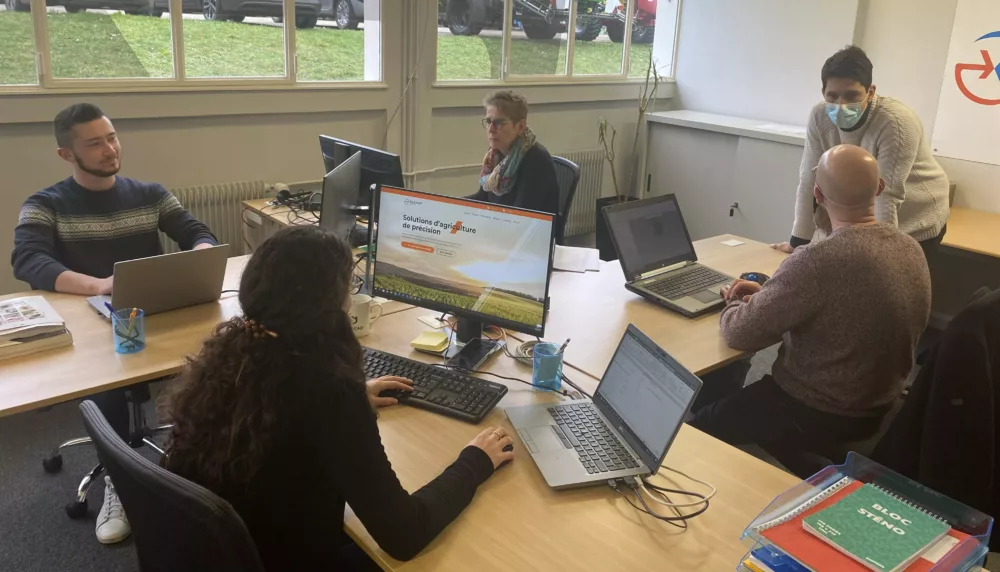
OUR OFFERS
EMPLOYMENT
Our idea, to create the pleasure of working for the company and the identification with the culture of the company.














